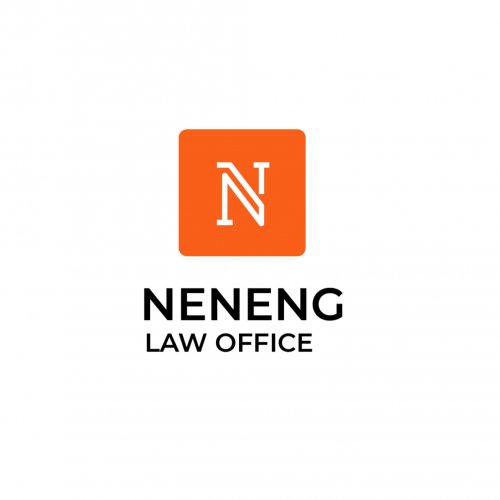Best Child Custody Lawyers in Douala
Share your needs with us, get contacted by law firms.
Free. Takes 2 min.
Free Guide to Hiring a Family Lawyer
List of the best lawyers in Douala, Cameroon
About Child Custody Law in Douala, Cameroon
In Douala, Cameroon, Child custody laws aim to ensure the well-being and security of a child following the separation or divorce of his/her parents. While the law promotes joint custody, allowing both parents to make decisions concerning the child's upbringing, the determination of child custody is done based on the best interests of the child. Factors like the child's age, emotional ties with parents, and parents’ ability to provide a stable environment play an integral role in determining the custodial rights.
Why You May Need a Lawyer
Legal representation is essential in navigating the complex forum of child custody law. Minority group custodial issues, divorce proceedings, abusive situations, or disputes between parents over custody may necessitate the intervention of a lawyer. Lawyers can offer invaluable advice, represent your interests in court, mediate discussions, and handle all legal paperwork necessary, ensuring your rights and your child's best interests are upheld.
Local Laws Overview
The civil law in Cameroon stipulates that both parents, regardless of whether they are married, separated, or divorced, share parental authority over their child. The law promotes joint custody, but when parents can’t agree, the court intervenes, taking into account the best interests of the child which is the utmost priority. Besides, a non-custodial parent is entitled to visitation rights unless it is detrimental to the child's welfare. Furthermore, child maintenance support is mandated by law from both parents according to their means.
Frequently Asked Questions
Who gets child custody after divorce?
Normally, both parents have equal rights to custody. However, when disagreement arises, the court decides based on the best interest of the child, considering factors such as the child's age, health, emotional ties, and parents' capabilities.
What does joint custody involve?
Joint custody indicates both parents are involved in making important decisions about the child's upbringing including education, religion, and health. This does not necessarily mean the child spends equal time with each parent.
Can visitation rights be denied?
Visitation rights can only be denied by the court if there are serious concerns about the child’s safety and welfare in the non-custodial parent’s care.
Can child custody be modified?
Yes, child custody orders can be modified if there is a significant change in circumstances that affects the child, or if it’s in the best interest of the child.
Are grandparents entitled to visitation rights?
In general, grandparents have no legal rights to visitation, unless it is considered beneficial for the child and provided it doesn't harm the child's well-being.
Additional Resources
For further support, you can reach out to organizations such as the National Commission for the Rights of the Child (NCRD) and Cameroon Bar Association. They provide valuable resources and advice regarding child custody processes. In addition, the Department of Social Affairs within the Ministry of Social Affairs offers guidance related to child protection and welfare.
Next Steps
If you need legal assistance in child custody, start by identifying a reliable lawyer experienced in child custody law in Douala, Cameroon. Consult them to understand your rights and possibilities within your unique circumstances. Ensure to gather relevant documents including birth certificates, proof of income, residence, and evidence of the child’s relationship with each parent. Always put the well-being of the child first in your discussions and legal actions.
Lawzana helps you find the best lawyers and law firms in Douala through a curated and pre-screened list of qualified legal professionals. Our platform offers rankings and detailed profiles of attorneys and law firms, allowing you to compare based on practice areas, including Child Custody, experience, and client feedback.
Each profile includes a description of the firm's areas of practice, client reviews, team members and partners, year of establishment, spoken languages, office locations, contact information, social media presence, and any published articles or resources. Most firms on our platform speak English and are experienced in both local and international legal matters.
Get a quote from top-rated law firms in Douala, Cameroon — quickly, securely, and without unnecessary hassle.
Disclaimer:
The information provided on this page is for general informational purposes only and does not constitute legal advice. While we strive to ensure the accuracy and relevance of the content, legal information may change over time, and interpretations of the law can vary. You should always consult with a qualified legal professional for advice specific to your situation.
We disclaim all liability for actions taken or not taken based on the content of this page. If you believe any information is incorrect or outdated, please contact us, and we will review and update it where appropriate.










